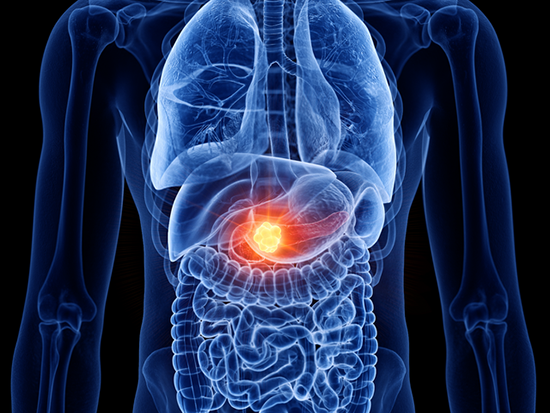Media contact: Brianna Hoge
 There are several ways you can reduce your chances of pancreatic-related illness and monitor your overall well-being for any sudden changes.This year, the American Cancer Society predicts approximately 1,000 Alabama residents will be diagnosed with pancreatic cancer. With a trending increase in cases for patients under the age of 55, an expert from the University of Alabama at Birmingham is sharing common signs and symptoms associated with pancreatic cancer to help people reduce risk and identify key indicators.
There are several ways you can reduce your chances of pancreatic-related illness and monitor your overall well-being for any sudden changes.This year, the American Cancer Society predicts approximately 1,000 Alabama residents will be diagnosed with pancreatic cancer. With a trending increase in cases for patients under the age of 55, an expert from the University of Alabama at Birmingham is sharing common signs and symptoms associated with pancreatic cancer to help people reduce risk and identify key indicators.
The disease is known for its reputation of being harder to detect in earlier stages, but there are still several ways to reduce the chances of pancreatic-related illness and monitor one’s overall well-being for any sudden changes.
Lifestyle Changes
The pancreas is a vital organ to both the endocrine and digestive systems — it produces insulin, which plays a major role in the regulation of blood sugar, and creates enzymes that aid in the breakdown of food.
J. Bart Rose, M.D., associate professor in the UAB Marnix E. Heersink School of Medicine’s Department of Surgery, says there are several ways one can increase their health and reduce the strain put on the pancreas through diet and wellness modifications:
- limit alcohol consumption
- reduce sugar intake to stabilize blood sugar
- stop smoking
- if there are recurring bouts of pancreatitis, work with a care team to stabilize the health of the pancreas to prevent future episodes.
Listening to your body
If any of the following sudden changes are experienced, make note of the onset of symptoms and contact a primary care provider:
- tan or beige stools
- black or cola-colored urine
- sudden onset diabetes
- prolonged nausea or vomiting
- severe abdominal or stomach pain
- sudden weight loss or loss of appetite
- jaundice or yellowing of the skin and the eyes
 J. Bart Rose, M.D.
J. Bart Rose, M.D.
Photography: Chris CarmichaelPancreatic care
If these symptoms arise or a patient has been recently diagnosed with a pancreatic disorder, speak to their current provider about being referred to UAB’s Pancreatobiliary Disease Center. The PDC is the first multidisciplinary program in the state to treat diseases of both the pancreas and bile ducts.
“The level of collaborative care that UAB’s Pancreatobiliary Disease Center offers is a testament to the dedication our providers have for ensuring the best level of medical service possible,” said Rose, who is the director of the PDC. “We’re one of the largest tertiary care facilities in the Southeast and we are honored to support our patients through each step of their health care journey.”
Together with the patient’s local medical providers, members of the PDC will create a care plan that maximizes treatment while providing access to clinical trials, personalized treatment plans and comprehensive care.
To learn more about the latest surgical techniques and radiation oncology treatments in pancreatic and hepatobiliary cancer care offered at the O’Neal Comprehensive Cancer Center at UAB, click here.